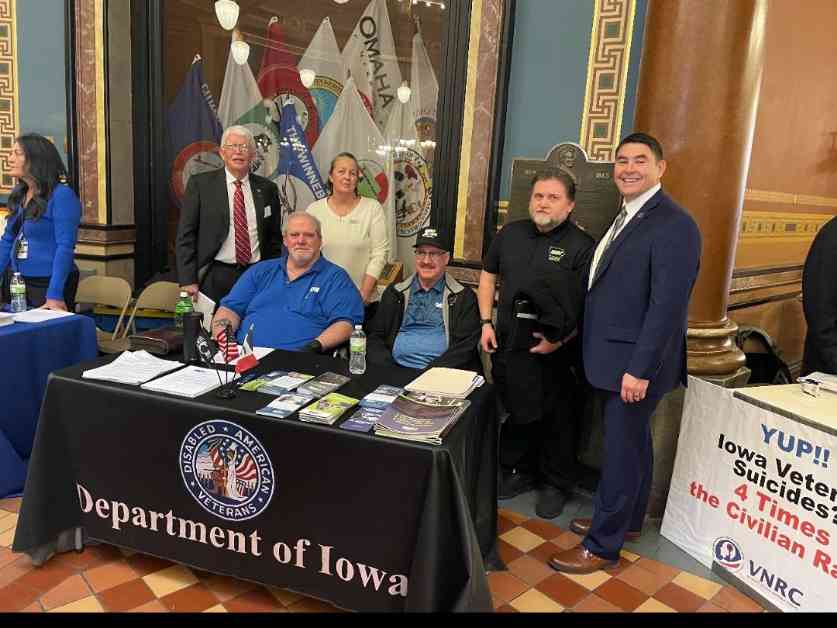Republican Representative Henry Stone of Forest City, Iowa, recently introduced a bill targeting commercial entities displaying obscene material, particularly focused on protecting minors from accessing such content. The proposed legislation aims to hold internet-based businesses accountable for distributing pornography, especially if minors can easily access the material. As the House Judiciary Committee deliberates on this bill, it also explores additional measures to safeguard children from inappropriate content, both online and offline.
Encouraging Progress in Education, Yet Challenges Remain
The legislative update from Rep. Stone coincided with the release of the 2024 National Assessment of Educational Progress (NAEP) results by the U.S. Department of Education. The assessment highlighted Iowa’s commendable achievement in eighth-grade reading scores, placing the state in the top 10 nationally. This success was attributed to Iowa’s steadfast commitment to evidence-based reading practices, grounded in the “Science of Reading.” However, the report also revealed a decline in math scores for both fourth and eighth graders, nudging Iowa’s math rankings down significantly to 30th and 23rd in the country.
While many states witnessed an uptick in math scores following the pandemic-related disruptions, Iowa’s consistent provision of in-person instruction over the past two school years led to a drop in rankings. This underscores the pressing need for statewide investments in evidence-based mathematics instruction, as emphasized by Iowa Department of Education Director McKenzie Snow. The disparities in achievement between students with disabilities and English learners further underscore the importance of targeted interventions to bridge these gaps and ensure equitable educational opportunities for all learners.
Legislation Aims to Safeguard Minors from Obscene Content
Simultaneously, the House Judiciary Committee is diligently working on bills aimed at protecting minors from exposure to obscene material, both online and in physical spaces. House File 62 seeks to establish liability for commercial entities that publish or distribute pornography online, particularly targeting websites and companies producing such materials. The bill also addresses the issue of artificially created pornography, ensuring stringent penalties for those exploiting AI to generate explicit content involving minors.
In a related effort, House File 64, personally managed by Rep. Stone, seeks to enhance penalties for individuals knowingly sharing or displaying obscene material to minors. The proposed legislation introduces a tiered approach to sentencing, escalating from a serious misdemeanor for initial offenses to a class “D” felony for repeat offenders. By imposing stricter penalties and mandatory minimum sentences, the bill aims to deter individuals from engaging in harmful practices that endanger the well-being of minors.
Addressing Harmful Practices in Pharmacy Benefit Management
In a separate legislative move, the House Commerce Committee introduced House Study Bill 99 to address detrimental practices employed by Pharmacy Benefit Managers (PBMs) that negatively impact Iowa residents and pharmacies. PBMs act as intermediaries between health insurers and drug manufacturers, processing prescription claims on behalf of insurers or employers. The proposed bill includes a range of regulations to curb discriminatory practices, ensure fair reimbursement for pharmacies, and mandate transparency in prescription drug pricing.
These legislative initiatives underscore Iowa’s commitment to prioritizing education, child protection, and healthcare access for its residents. By addressing critical issues such as educational disparities, online safety for minors, and fair practices in pharmacy benefit management, lawmakers strive to create a more equitable and secure environment for all Iowans. As these bills progress through the legislative process, they hold the potential to significantly impact the well-being and future prospects of individuals across the state, reflecting a proactive approach to addressing pressing societal challenges and fostering a more inclusive and supportive community for all.









